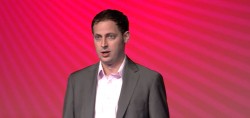The Vigor of Rigor: Moneyball, Nate Silver, and IPA
You needed years of personal experience to pick a winner, they said. It was about trusting your gut, not the numbers. Building a team in baseball had long been the purview of salty scouts with decades of experience who had seen and delved into the psyche of thousands of players, but as is now well known and documented, moneyball changed all that. A focus on numbers and cost effectiveness, within a few short years, has upended the sesquicentenarian art of baseball scouting.

Then, rather than rest on his laurels, one of the sabermetricians instrumental in the moneyball revolution, Nate Silver, turned to the world of politics. He quickly received loads of publicity for his predictions beating the betting market cum reigning prediction champion Intrade in 2008. And several other outfits that followed similar methods of compiling polls cropped up, such as Sam Wang at the Princeton Election Consortium and Drew Linzer with Votamatic. But there were still doubters, and in the past few weeks, they had grown more vocal, from the National Review to Joe Scarborough. The 2012 elections were winding up to be an epic showdown between the Old Talking Heads and the New Electometricians, as the New Yorker put it, “the true moneyball moment in American electoral politics.”
The victor was clear, just check out Slate’s dartboard visualization of pundit accuracy. As Bloomberg put it: “Nate Silver-led statistics men crush pundits in election.”
But lest we attribute the prediction abilities of Silver et al. to their superior intellect and uncanny ability to see the future, remember that the entire purpose of the Electometrician Revolution was to take the subjectivity and uncertainty out of the prediction process. In other words, they were correct in their predictions election night not because of their intellect, but rather, because they used simple, transparent formulas on methodologically sound data that was replicated.
So now that sports and elections have been revolutionized by more rigorous, stats-based methodologies, what’s next? It’s been years in the making, but I would argue that the next field ripe for a statistical harvest is not so far from the elections themselves: public and social programs.
There is a growing consensus among academics that randomized evaluation is an achievable gold standard not only for the sciences, but also for the social sciences. And this consensus has started spilling over into the realm of practitioners. Everyone from US federal and state government agencies to foreign governments to local and international nongovernmental organizations has started using randomized evaluations to accurately discover what works and how cost effective it is. Just as in baseball and elections, we are using simple, transparent formulas on methodologically sound data that has been replicated.
We’ve set up the Proven Impact Fund so that anybody can see which programs work and why. We won’t choose your fantasy baseball team for you, but you can take part in the Revolution of What Works.











